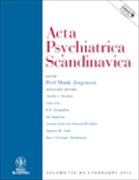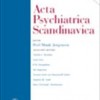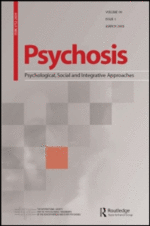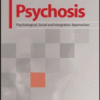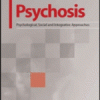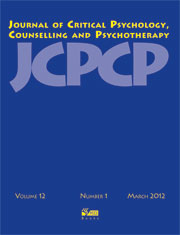Editorial: Voices in a Positive Light
/0 Comments/in Articles, Publications /by Jacqui
What does it mean to think of voices ‘in a positive light’?
For the contributors to this first special issue of Psychosis, it means challenging any model that understands voice-hearing solely as the meaning-less symptom of an underlying disease, deficit, or dysfunction. Mainstream biomedical psychiatry’s account of auditory verbal hallucinations we regard as phenomenologically impoverished, actively disempowering, over-invested in unsupportable distinctions between ‘normal’ and ‘pathological’ voices, and ill-equipped to investigate or make sense of what is now known about the link between voice-hearing and people’s life experiences. As a result, its efforts to midwife recovery from the impairment that can be caused by some voices are at best incomplete and, at worse, actively harmful. Without downplaying the need for further investigation and critique of these dominant models, our goal in this special issue is to foreground positive approaches both to the experience of hearing voices and to the way this is conceptualised and researched.
Hearing Voices Peer Support Groups: A Powerful Alternative for People in Distress
/1 Comment/in Articles, Publications /by JacquiHearing voices peer support groups offer a powerful alternative to mainstream psychiatric approaches for understanding and coping with states typically diagnosed as “hallucination”. In this jointly authored first-person account, we distill what we have learned from 10 years of facilitating and training others to facilitate these groups and what enables them to work most effectively in the long term. Having witnessed the transformative power of these groups for people long considered unreachable as well as for those who receive some benefit from standard psychiatric treatment, we describe effects that cannot easily be quantified or studied within traditional research paradigms. We explain the structure and function of hearing voices peer support groups and the importance of training facilitators to acquire the skills necessary to ensure that groups operate safely, democratically, and in keeping with the theories and principles of the Hearing Voices Network. The greater use of first-person experience as evidence in deciding what works or doesn’t work for people in extreme distress is advocated; randomized designs or statistically significant findings cannot constitute the only bases for clinical evaluations.
Just Saying It As It Is: Names matter; Language Matters; Truth Matters
/0 Comments/in Articles, Publications /by JacquiClinical language has colonised experiences of mental distress and alienation. Consequently, many accounts of healing and recovery seem to be about a decolonising process, a reclaiming of experience (Dillon and May, 2002). These counter narratives, which offer diverse representations of survival in adversity (hooks, 1993), follow in a long tradition of protest literature (Hornstein, 2002). From slavery abolitionists and suffragettes, to feminists and black and gay civil rights activists, who have repudiated dominant, oppressive ideologies via the language of discrimination, to challenge injustice. Many of us within mental health activism have argued that it is crucial to decolonise the medicalised language of human experience in order to contest the dominant paradigm of the biomedical model of madness and distress. After all, fighting for the rights of those labelled mentally ill, is the last great civil rights movement (Dillon et al, 2013).
Just Saying It As It Is: Names matter; Language Matters; Truth Matters
/0 Comments/in Articles, Publications /by Jacqui
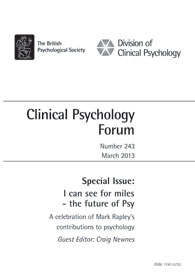 Clinical language has colonised experiences of mental distress and alienation. Consequently, many accounts of healing and recovery seem to be about a decolonising process, a reclaiming of experience (Dillon and May, 2002). These counter narratives, which offer diverse representations of survival in adversity (hooks, 1993), follow in a long tradition of protest literature (Hornstein, 2002). From slavery abolitionists and suffragettes, to feminists and black and gay civil rights activists, who have repudiated dominant, oppressive ideologies via the language of discrimination, to challenge injustice. Many of us within mental health activism have argued that it is crucial to decolonise the medicalised language of human experience in order to contest the dominant paradigm of the biomedical model of madness and distress. After all, fighting for the rights of those labelled mentally ill, is the last great civil rights movement (Dillon et al, 2013).
Clinical language has colonised experiences of mental distress and alienation. Consequently, many accounts of healing and recovery seem to be about a decolonising process, a reclaiming of experience (Dillon and May, 2002). These counter narratives, which offer diverse representations of survival in adversity (hooks, 1993), follow in a long tradition of protest literature (Hornstein, 2002). From slavery abolitionists and suffragettes, to feminists and black and gay civil rights activists, who have repudiated dominant, oppressive ideologies via the language of discrimination, to challenge injustice. Many of us within mental health activism have argued that it is crucial to decolonise the medicalised language of human experience in order to contest the dominant paradigm of the biomedical model of madness and distress. After all, fighting for the rights of those labelled mentally ill, is the last great civil rights movement (Dillon et al, 2013).
The Work of Experience Based Experts
/0 Comments/in Book Chapters, Publications /by JacquiJudi Chamberlin died in January, 2010 (Hevesi 2010). This chapter consists of a shortened version of Judi’s chapter in the first edition of Models of Madness, followed by a summary on the effectiveness of user led services and an account of the Hearing Voices Movement by Jacqui Dillon, Peter Bullimore and Debra Lampshire
A presentation by Jacqui Dillon at Carina Håkansson’s Family Care Conference in Sweden from Mad In America
/0 Comments/in Film, News /by JacquiBAD THINGS THAT HAPPEN TO YOU CAN DRIVE YOU CRAZY
Jacqui Dillon, the national chair of the Hearing Voices Network in England, discusses the work of the Hearing Voices Movement at the recent conference ‘Presence and Participation: Arguments for the Humanistic and Sustainable Work We Do’ hosted by Carina Håkansson’s Family Care Foundation in Sweden (25-27 April 2013). To listen to Jacqui’s presentation, please click here.
The full conference proceedings are available via live streaming video on MadinAmerica.com.
DSM-5 Protest Tuesday 4th June 4.30pm onwards at the Institute of Psychiatry
/0 Comments/in News /by JacquiSpeak Out Against Psychiatry (SOAP) are a group of former patients, carers, mental health professionals and concerned citizens who are campaigning for humane treatment for people experiencing mental distress. SOAP are opposed to forced treatment, electro-shock therapy and the psychiatric drugging of children. SOAP also promote humane alternative ways of helping people in distress.
SOAP are organizing a demonstration to coincide with a forthcoming Institute of Psychiatry conference on the DSM-5 (the latest of edition of the “Diagnostic and Statistical Manual of Mental Disorders” a book published by the American Psychiatric Association which is widely used throughout the world to classify mental disorders).
The protest will be on Tuesday 4th June from 4.30pm till early evening at the Institute of Psychiatry, De Crespigny Park, London, SE5 8AF.
SOAP are organizing the protest as they feel that the DSM-5 makes it easier for normal human experiences to be labeled as mental illness. For example people experiencing grief can be more easily given the label “Major Depressive Disorder”, and children with temper tantrums can now be diagnosed as having “Disruptive Mood Dysregulation Disorder”.
A spokesperson for SOAP says “The DSM encourages a tick-box approach to understanding human distress which serves the interests of professionals and drug companies rather than the people who really need help. With the DSM-5 things have been taken a step further: even mainstream organizations such as the National Institute for Mental Health and the British Psychological Society are distancing themselves from the DSM-5, claiming it is unscientific. ”
SOAP feels the DSM-5 will increase the number of people stigmatized by a mental health diagnosis, increase prescriptions of mind-altering drugs, and further what they see as a worrying trend of everyday human problems being put in the hands of highly paid experts and pharmaceutical companies rather than our families and communities.
SOAP also objects to the DSM approach in general, where new disorders are created by committees without any objective biological evidence. SOAP highlights the fact that in earlier versions of the DSM, homosexuality was classed as a disorder but this has since been removed as it is no longer socially acceptable. SOAP feel that, while mental disorders are frequently being changed by the professionals, patients are still forced to accept them.
A SOAP advocate says, “In the UK mental health system, if a patient rejects the psychiatric label, they are described as ‘lacking insight into their condition’ and the Mental Health Act is used to force them to take medication. How can a person be expected to agree to a label when they are changing every time the latest guide book comes out?”
The protest will give people the chance to voice their concerns about the DSM-5, and allow survivors of the psychiatric system to speak out about their experiences of labelling and forced treatment. SOAP will also be holding a memorial service for a former member who tragically took her own life following decades of forced medical treatment.
SOAP invites anybody who is concerned about the DSM-5, or other aspects of the mental health system, to come along on Tuesday 4th June – from 4.30pm till the early evening, at the Institute of Psychiatry, De Crespigny Park,London, SE5 8AF.
PDF press release available here: SOAP-DSM-5PressRelease
Latest Updates
- Drop the Disorder – And then what?!29/10/2021 - 6:48 PM
- Intervoice Congress 202131/08/2021 - 7:18 PM
 BBC Breakfast: Jacqui and Rai talking about Hearing Voices on TV18/07/2021 - 8:07 PM
BBC Breakfast: Jacqui and Rai talking about Hearing Voices on TV18/07/2021 - 8:07 PM Jasper Gibson & Jacqui Dillon in conversation at AD4E Festival05/05/2021 - 3:37 PM
Jasper Gibson & Jacqui Dillon in conversation at AD4E Festival05/05/2021 - 3:37 PM Jasper Gibson and Jacqui Dillon, In Conversation – Fiction about Psychosis: Impact, ethics, effects05/05/2021 - 2:45 PM
Jasper Gibson and Jacqui Dillon, In Conversation – Fiction about Psychosis: Impact, ethics, effects05/05/2021 - 2:45 PM

